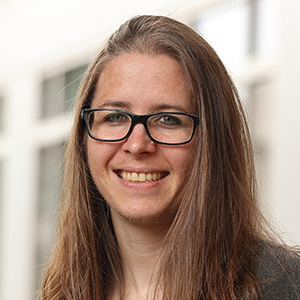To enable cell-based therapies, we need strategies to tune the mechanical, chemical, and topological properties of cell culture materials to mimic native cellular environments. Cells and tissue engineered with specific functions can restore tissue damaged by disease or injury, offering critically needed treatments. However, reliable manufacturing and administration of these cell-based therapeutics remains a challenge due to the limited availability and high variability of tissue-mimetic scaffolds in which to instruct and control the growth of cells and tissues. Capturing the complex, diverse mechanics, chemistry, and topology of natural tissue with reproducibly manufacturable synthetic materials requires leveraging and extending the arsenal of materials science and chemistry tools to tune materials properties.

In this talk, I will describe our lab’s efforts to understand and employ interactions between peptides with complementary stereochemistry to design hydrogels that mimic the adaptable, dynamic nature of tissue. These hydrogels, prepared simply by mixing two precursor solutions, feature transient cross-links that form between peptides with complementary, regular stereochemistry due to favorable packing arrangements. By tuning the length, charge, and hydrophobic content of the peptides comprising the cross-links, we show how these molecular-scale changes modulate hydrogel mechanics and stability. Understanding and leveraging peptide stereochemistry as a new tool in the hydrogel chemistry arsenal will allow us to tune the mechanics, stability, chemistry, and topology of hydrogels with increasing precision for engineering cells and tissue, and thereby contribute to the development of cell-based therapies.
Rachel A. Letteri is an Assistant Professor in the Department of Chemical Engineering at the University of Virginia. She obtained a B.S. in Chemical & Biomolecular Engineering from Notre Dame in 2010 and a Ph.D. in Polymer Science & Engineering from the University of Massachusetts Amherst under the direction of Professors Todd Emrick and Ryan Hayward, prior to postdoctoral research in the laboratory of Professor Karen Wooley in the Department of Chemistry at Texas A&M University.
Her research interests include polymer- and peptide-based materials with applications in medicine and engineering, and she is thrilled to be building a new lab with an outstanding group of undergraduate and graduate researchers. Rachel thoroughly enjoys introducing second year undergraduates to chemical engineering through her Material & Energy Balances course. She also teaches Biochemical Engineering and a graduate course on Chemistry for Engineering Functional Soft Materials. Rachel currently serves as a co-director of the Materials Engineering & Science Division of the American Institute of Chemical Engineers and on the executive committee of the Polymeric Materials Science & Engineering Division of the American Chemical Society.
CBEGSO reception with light refreshments will be held in the Hesburgh Library Scholars Lounge prior to the seminar.